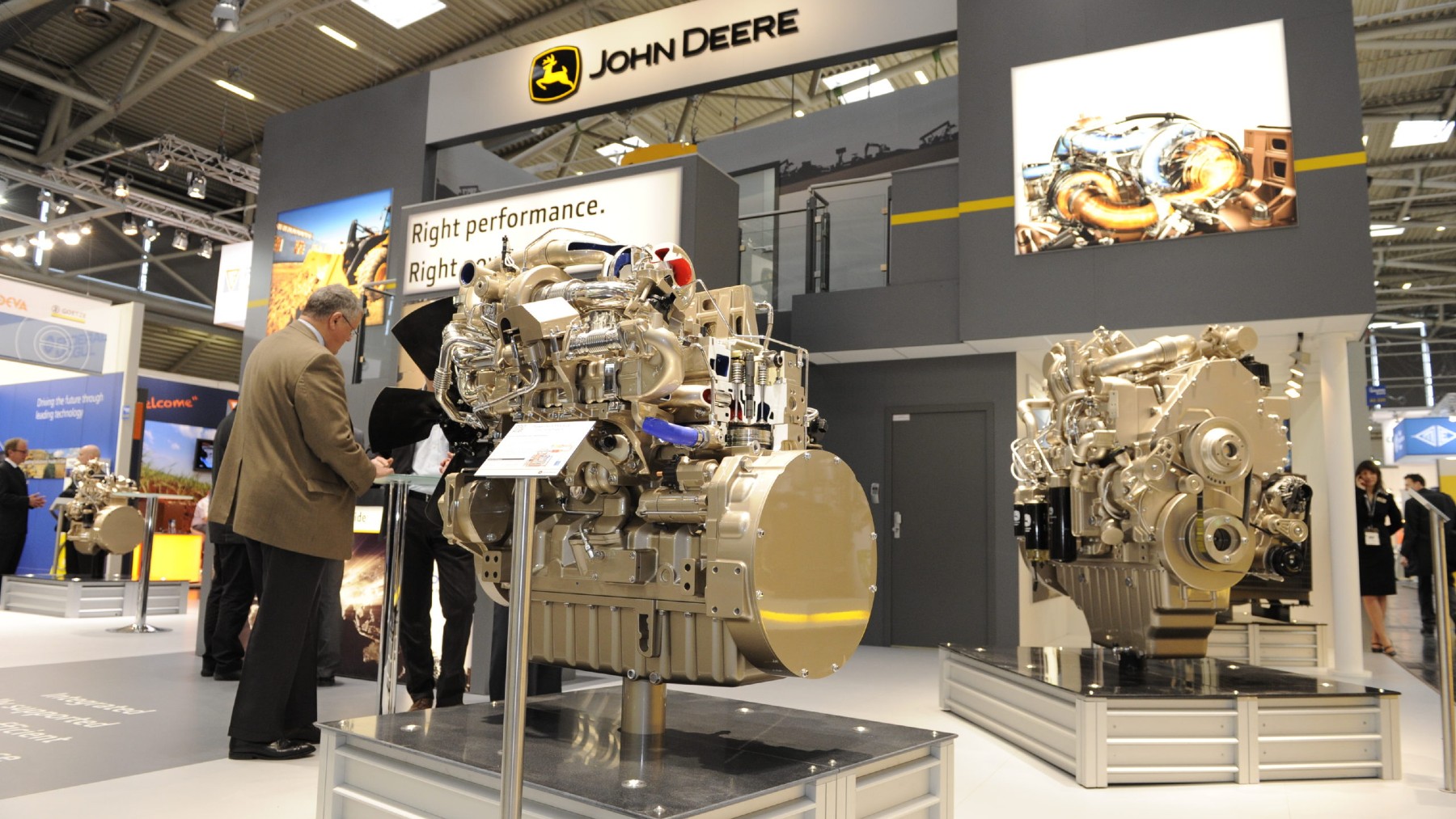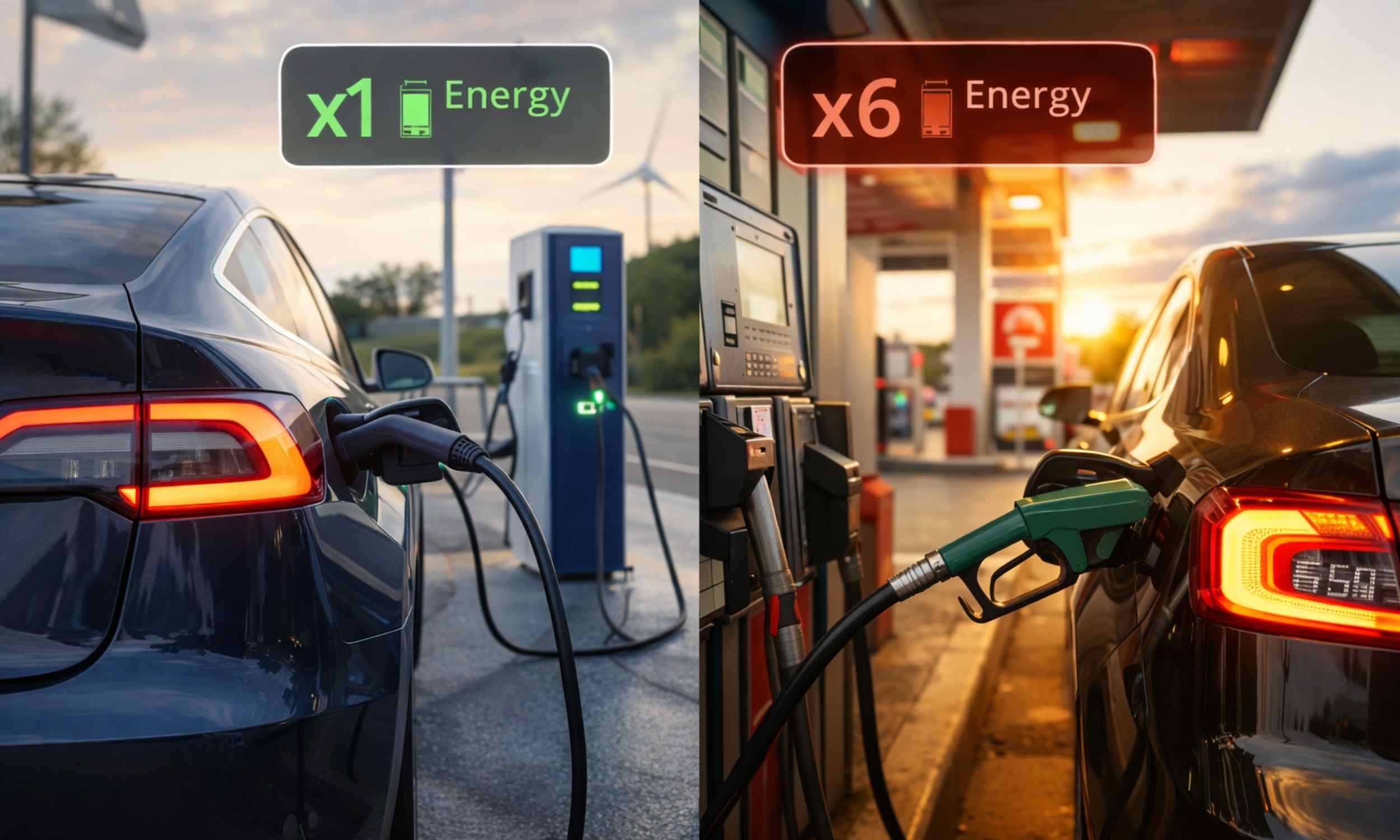Alcohol fuels could revolutionize the future of sustainable agriculture and heavy machinery, such as John Deere’s ethanol engine, and they are set to introduce a revolutionary concept at the Agritechnica trade fair in Hannover, Germany.
This innovative 9.0-liter engine is a groundbreaking move towards its ‘Leap Ambitions,’ a set of the company’s goals to supply low or zero-carbon emission solutions by 2026. Thus, as society pays more attention to renewable energy sources, John Deere’s biochemical shift from hydrogen to alcohol-based fuel- ethanol signifies a possible revolution in the agricultural industry power systems.
John Deere’s ethanol engine: A game-changing shift from hydrogen to alcohol fuels in farming
By presenting an ethanol-powered engine, John Deere emphasizes the relevance of renewable fuels used in agriculture. The feedstocks include corn, wheat, and sugarcane, making ethanol a renewable energy source available in abundance compared to fossil fuels. Due to its high octane rating, the fuel is ideal for spark-ignition engines, ensuring that high-performance requirements are met in heavy-duty operations and equipment.
In this way, although addressing environmental concerns, John Deere is also perfecting the use of a fuel type that is already familiar to the agricultural community: ethanol. It could have the effect of making farming a more sustainable and self-sufficient sector in which farmers are not only producing feed but also fuel. Further, it can also boost rural economies by demanding crops crucial in ethanol production.
Unveiling the powerful 9.0-liter ethanol engine that could transform agricultural machinery
The main focus of John Deere’s Live, the Life at Agritechnica exhibit is the concept of a 9.0-liter ethanol engine. This powerful engine shows that the company has been working on various solutions to address power requirements across various equipment profiles. A quick analysis of the recommended positions and concluding remarks shows that a nine has been correctly chosen.
As for 0-liter displacement, John Deere aims at high-power solutions, which may include large tractors and combines. Through the successful modification of spark-ignition technology with ethanol, John Deere has indicated that the company’s engineering skills and capacity to create new solutions within the current framework of combustion engine structures could provide a quicker option in combating global warming than embracing more drastic forms of technological changes.
The capital cost approach means that the farmers and the companies that are into agricultural businesses can change to environmentally friendly practices out of their current equipment without purchasing new equipment, offering a pragmatic way to address environmental pressures in the agriculture industry.
How John Deere’s ethanol engine could impact farming and the fuel industry
The ethanol engine concept of John Deere has potential impacts on the agricultural field and other related industries in the following ways. As it uses a fuel that can be made from crops, the technology may be mutually beneficial to the farming industry and fuel production, possibly creating new sources of income for farmers.
However, with the adaptation of ethanol-powered engines, the carbon footprint of agricultural activities would significantly be reduced, thus effectively combating climate change. This move by John Deere also hints at a possible shift in emphasis in the industry.
It indicates that in the near term, alcohols, especially ethanol fuels, could be more critical in the transition from fossil fuels, especially given that this would appear to offer value-added potential over hydrogen given the ready availability for ethanol production and distribution.
A landmark step toward environmentally friendly agriculture: John Deere’s ethanol engine
In conclusion, the 9. The single-zero liter ethanol fuel engine exhibited at the world agricultural trade fair Agritechnica is a landmark in the search for environmentally friendly agriculture technologies. Ethanol is a renewable fuel linked to the farming industry. With the power of ethanol, John Deere is solving the problem of ecologically hazardous products and possibly changing the connection between farming and power.
Amid the growing pressure to counteract climate change and decrease the carbon footprint of factories, this approach to driving massive equipment is an effective solution. Although there are issues with expanding the ethanol market and retrofitting the current machinery, John Deere’s daring move may herald a future primarily run by the crops farmers cultivate, a circle of life in the agricultural industry.














